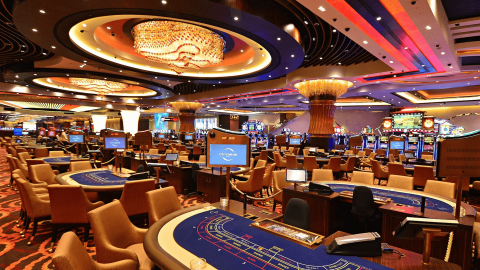India’s Online and Land-based Casino Industry: Opportunities, Challenges, and the Path Forward
India’s gaming industry is on the cusp of significant growth, but it faces formidable obstacles in the form of regulatory and legal complexities. William Bonar, a renowned gaming consultant, recently shared insights into the sector’s potential and hurdles following his visit to India earlier this year. While drawing comparisons to Macau's early growth phase, Bonar highlighted the advancements in India’s gaming landscape, particularly in Goa. However, challenges such as restrictive regulations, high taxation, and legal ambiguities remain critical barriers to realizing the industry’s full potential. Bonar's comments were published by gambling and sports betting magazine Asian Gaming Brief.
India’s Gaming Potential: A Parallel to Macau
1. Emerging Sophistication in Gaming Operations
William Bonar noted that India’s gaming ecosystem is developing at a pace surpassing expectations. “The growing sophistication of the Indian gaming landscape is remarkable,” Bonar remarked, likening its potential to Macau’s transformation in the early 2000s.
Regulatory Challenges Hindering Growth
1. Restrictive Casino Regulations in Goa
One major hurdle is the limitation on the number of floating casinos permitted in Goa. Despite these restrictions, operators have innovated by expanding the size of their casino ships to include additional levels for gaming and entertainment. However, this workaround can only go so far in driving industry expansion.
2. Taxation as a Growth Deterrent
Bonar identified India’s heavy tax burden as a critical issue stalling the industry. "India is one of the highest-taxed nations in the world, and this burden hampers the gaming industry’s growth,” he explained. High taxes place financial constraints on operators, limiting their ability to reinvest in infrastructure and innovation.
Operational Strategies Amidst Regulatory Constraints
1. Diversification and Efficiency
To navigate these challenges, Bonar emphasized the importance of diversifying operations and improving efficiency while adhering to stringent government regulations. This approach helps operators remain competitive despite financial and regulatory pressures.
2. Strengthening Self-Governance
Bonar praised the industry’s reliance on self-reporting and self-regulation as stabilizing factors. “Self-governance underpins the regulatory framework, providing a level of order amidst legal complexities,” he noted.
Looking Ahead: Hopes for Regulatory Reforms
1. Legal and Regulatory Hurdles
Bonar acknowledged India’s complex legal system as another obstacle to growth, particularly for casino gaming. However, he remained optimistic that regulatory challenges could ease after elections, creating a more favorable environment for the industry.
2. A Future of Untapped Potential
Despite the hurdles, Bonar expressed optimism about India’s gaming future. By addressing taxation and regulatory barriers, the industry could unlock opportunities that parallel the early days of Macau’s rapid rise as a global gaming hub.
